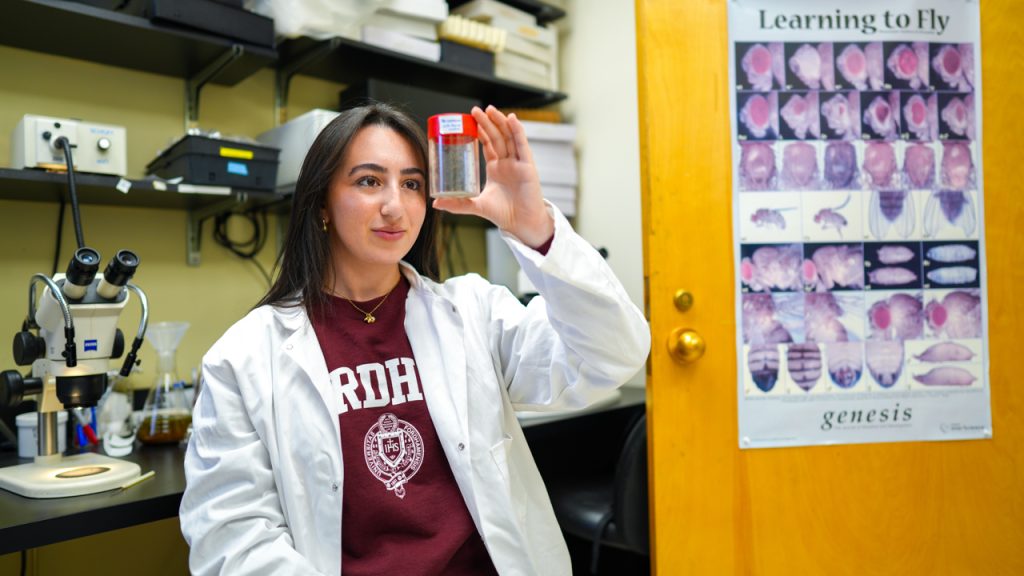Julia Gudis is using her summer vacation to make a positive impact—researching innovative brain tumor treatments in Switzerland.
Gudis is the first Fordham student to earn the ThinkSwiss Research Scholarship, which creates research opportunities in Switzerland for students from the U.S. and Canada. Gudis, a rising senior studying biological sciences, is working with a group at the University of Basel Department of Biomedicine, studying treatments for glioblastomas, an aggressive type of brain tumor without a cure.
Testing a New Approach to Cancer Treatment
The ThinkSwiss scholarship encourages students to do their own networking and find a project that aligns with their research interests. Gudis, who previously earned the Len Blavatnik STEM Research Fellowship, was inspired to join the glioblastoma project after talking with its leader, Dr. Gregor Hutter, a neurosurgeon and scientist searching for a way to help his patients with the deadly tumor.
“He’s dealt with numerous glioblastoma patients that have unfortunately passed away due to the tumor, since it’s untreatable. And that’s what led him to search for his own solution,” Gudis said.
At the lab in Basel, Gudis is researching how macrophages—white blood cells that are key players in the innate immune system—can engage multiple components of the immune system to target a wide range of tumor antigens. A recent publication from the lab showed that engineering certain receptors can enhance the macrophage’s activity and aggressiveness, potentially improving immune responses against solid tumors like glioblastoma.
“Our goal is to get away from depending on just one antigen, because you won’t get all the cells of a tumor with just T cells,” Gudis said, referring to another form of immunotherapy using T cells that has limited success for treating glioblastoma. With another avenue for targeting the cancerous cells, she and the other researchers hope to find a way to eliminate them completely.
‘Falling in Love’ with Research at Fordham
For Gudis, research wasn’t always her passion. She plans to go to medical school after graduation, and said she pursued research because she knew it was an important step in that plan. But something shifted during her sophomore year while she was working in the genetics lab of Edward Dubrovsky, Ph.D.
“That’s where I fell in love with research,” Gudis said. “ It made me take my lectures a lot more seriously … I think everyone’s had this moment in a lecture where they ask a question and their professor says, ‘I don’t know how to answer that, but maybe one day we’ll have the answer.’ And it’s just really rewarding to be a part of that.”
Dubrovsky became a close mentor for Gudis, and wrote her letter of recommendation for the ThinkSwiss scholarship. He also encouraged her to join the neuroscience lab of Kaoutsar Nasrallah, Ph.D., at Fordham, where Gudis is working on her senior thesis as part of the honors program.
When she’s not working, Gudis hopes to spend her time in Switzerland traveling around the country, as well as shadowing Dr. Hutter to see what it’s like to work as a neurosurgeon. After graduation, she’s considering pursuing a dual MD/PhD so she can work with patients as a doctor while continuing to research treatments to help them.



